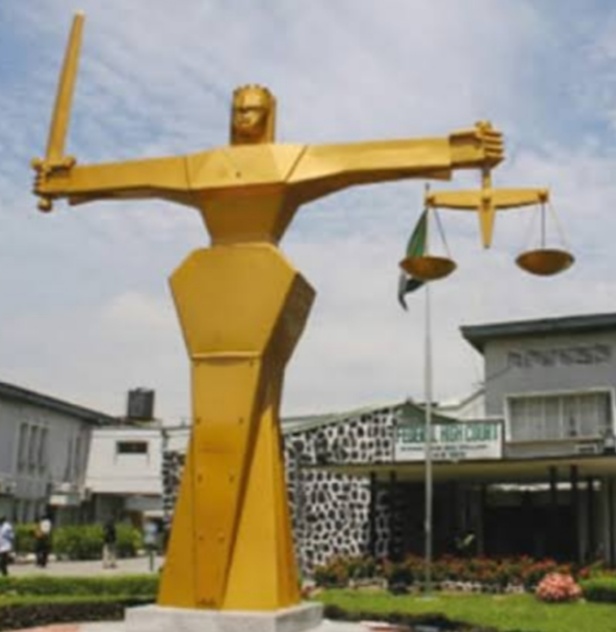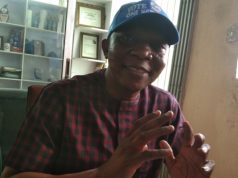BY JEFF ORJI
Generally, there are three organs of government; Executive, Legislature and Judiciary. Among the three arms of government in a democratic dispensation, the Executive and the Legislature have elected members within a time frame of tenure, whilst the Judiciary has no elected members. The Magistrates and the Judges in the Judiciary are appointed based on merit. Consequently, the doctrine of separation of powers is a cardinal feature of a democratic government. This doctrine was introduced by a French Political Philosopher, Baron de Montesquieu for the protection of the citizens from dictatorship. This doctrine keeps the three arms of government in check. No arm of government exploits its powers without the scrutiny of the other arms.
The Judiciary is the branch of government responsible for interpreting the laws and administering justice. In Nigeria, the establishment and powers of the Judiciary are enshrined in Section 6 of the Constitution of the Federal Republic of Nigeria, 1999 (as Amended). The Judiciary, the world over, is regarded as the last hope of the common man. This presupposes that it is the only place the common man can get justice! Where dispute arises, and parties can not settle it as between themselves, their kinsmen or mediators, resort to the Honourable Court would be the remedy and ideal. The function of the Judiciary is not to twist the truth or fabricate facts, but is to interpret the law. The consequence of the interpretation of the law is justice.
In the administration of justice, the court is the threshold of justice, and justice alone. This is why the common man has always deemed it fit and appropriate heading to the court of law to seek for justice where there is any wrong done to him. To both the common and uncommon man, the court is like a holy sanctuary. To this end, Dr. Haburk Manson, once said: “Magistrates and Judges are twin younger brothers to Jesus Christ fathered by the Almighty God”. In other words, Magistrates and Judges should live above board in the discharge of their judicial duties. They are expected to live like the Caesar’s wife, above board. The Magistrates and the Judges are persons whose action or inaction vis-a-vis their judicial functions affects a person, either good or bad. It behoves on them to do justice to all manner of persons without fear or favour. It is the Judiciary that spotlights and corrects the errors of the other two arms of government to wit, the Executive and the Legislature. It is the Judiciary that curbs the excesses of other two arms of government. The Judiciary as the watchdog of the society, should not allow the common man’s hope to be dashed.
Whenever the Judiciary is mentioned, what quickly comes to one’s mind is the Court. The Judiciary is the Bench. The Bench comprises the Magistrates and the Judges, whilst the Bar, is of the legal practitioners. The Bench is also known as the Temple of Justice. It is the umpire of the society. The legal practitioners are not members of the Bench, but the Bench is their constituency as they are ministers in the Temple of Justice. The Bar and the Bench constitute the Legal Profession. It is only the court that is empowered to pronounce an accused person or persons death under the law and this happens when the accused person is found guilty after a full trial. Extra Judicial killings have no place under the Nigerian law. The Judiciary does not make law. It only interprets the law made by the Legislature. However, it is worthy of note that the Judiciary also makes law by way of “Judicial Precedent”.
X-raying closely the symbol of justice or the Lady Justice whose eyes are blindfolded, signifying that the law is blind, and is no respecter of persons. The Lady holds a Scale of Justice by her left hand, and a Sword of Justice by the right hand. She strikes with the Sword of Justice upon the side the Scale of Justice tilts. Interestingly, as a matter of fact, from 1963 to date, Nigeria has been blessed with men and women of honour on the Bench. Their landmark-judgments are replete with uncommon legal wisdom and erudition. These are evident in the Law Reports.
The former Chief Justice of Nigeria, Hon. Justice Mahmud Mohammed in swearing in of two Justices of the Supreme Court sometime on the 7th day of November, 2016, enjoined the two justices thus: “You must remain blind to personality and status, and remain the hope of all men whether common or uncommon”.
Once upon a time in the same vain, the Chairman, Presidential Advisory Committee against Corruption, Prof. Itse Sagay, SAN, in enjoining Judges, had this to say: “Judges who are corrupt have destroyed the judiciary and nothing is too much for their punishment”. A retired Supreme Court Justice, Hon. Justice Samson Uwaifo, also stated thus: “A corrupt Judge is more harmful to the society than a man who runs amok with dagger in a crowded street”. Where a common man cannot get justice in the court, the Judiciary would be a disaster, and the society will definitely suffer it.
However at this momentous epoch, we seem to have a geometric growth in the number of Magistrates and Judges who appreciates personalities and not the facts and the law, hence abdication of the responsibility of being a Magistrate or a Judge to decide a matter one way or the other, in tandem with the law.
The Nigerian Judiciary has ensured the transition of successive democratic settings in recent times. The overreliance of the current dispensation on the judiciary even for the most frivolous and ridiculous election-related litigations has brought out the good, the bad, and the ugly in the Nigerian judiciary. Disciplinary cases handled by the NJC against judges for corruption and willful miscarriage of justice have been correspondingly increasing, further proof that the nation’s third arm of government has been deeply corrupted, compromised and politicised. What a pity!
Since the return of Nigeria to the current democratic dispensation, the judiciary has increasingly made incursions in determining electoral victories and outcomes. However, in many cases, their judgments are based on technicalities, like the case of Senator Ademola Adeleke in 2019, in which a judge failed to do the needful and Adeleke lost as a result. Each time such judgment is handed down, it rapes democracy by usurping the democratic rights of the citizens to directly choose who governs them. It is a sort of civilian coup. Many may claim this to be a global practice, but the Nigerian experience is quite an exception. For example, election ligations have been adjudged by records and informed sources as the highest in the world. The implication is simple: more often than not, the Nigerian judiciary now tends to decide who the leaders should be and not the Nigerian electorate. It is an aberration.
A retrospect on the nation’s judiciary, when great jurists like Justices Chukwudifu Akunne Oputa, Udo Udoma, George Sodeinde Sowemimo, Kayode Eso, Adolphus Godwin Karibi-Whyte, Muhammadu Lawal Uwais, Walter Onnoghen, Niki Tobi, Mary Odili, to mention a few, graced the bench, one could boldly described such time as days of glory for the Nigerian judiciary. What obtains today cannot but be seen as disappointingly appalling. You will recall that Justice Chukwudifu Oputa once said that, “Supreme Court is final not because it is infallible; it is infallible because it is final”. This is a deep philosophical declaration that conveys the ultimate burden borne by a judge and a corruptible judge worse than an armed, rapist and murderer combined.
But since the days of Oputa, the third arm has shrunk in public estimation and perception in our clime, and for good reasons. The confidence enjoyed by the judiciary as the last hope of the common man has greatly waned through the vicissitudes visited on it and for the many injuries, the arm has inflicted itself. The heads of the arm have of late openly complained about corruption in the judiciary on auspicious occasions.
One recalls an insightful statement by a justice of the Supreme Court His Lordship Justice Niki Tobi of blessed memory: “We the judges have no friends among you”. This eternal statement by Justice Tobi is both an admonition and assurance of the neutrality of the judiciary as an umpire. But several cases in recent times have called into question this presumed neutrality of the judiciary, without which justice may be impossible to obtain due to the likelihood of bias. One classic example is the Supreme Court judgment that declared Senator Hope Uzodinma the governor of the Imo state. He was inexplicably catapulted from fourth position to first. Nigerians vehemently rejected the curious judgment and they keep referring to Hope Uzodinma as Supreme Court governor yet nothing has been done about that by the judiciary. Since the emergence of Uzodinma as governor under what the public sees as a judiciary heist, Imo state has not known peace. So many have died in the attendant rising insecurity in the state and properties worth billions of naira have been destroyed as well. There have been sorrows, tears, and blood shed every part of the state. Funny, enough, he has launched himself for second tenure in the last concluded controversial and manipulated state election
The Hope Uzodinma example emanating from the Supreme Court judgment opened Nigerians eyes on the kind of justice that is now possible in the nation’s judiciary. That was why most Nigerians lost faith even as most Nigerians prayed and pleaded with the judiciary to rescue the country in the last fraudulent presidential election which was shrouded in irregularities and arbitrarily awarded victory to Bola Ahmed Tinubu. With this development though with great skepticism, the Nigerian citizens turned to the same judiciary to mediate in the disputed presidential election where the umpire – INEC – abandoned the electoral act enacted by the national assembly and signed into law by the president to announce a winner without following the procedures laid down by law.
The two main opposition candidates Atiku Abubakar and Peter Obi, have both landed in the Court of Appeal, which serves as the tribunal in the presidential election. Both men lay claim to being the actual winners of the presidential poll, challenging the outcome and legality. For embracing a legal process, both men are statesmen and patriots who as a matter of truth prevailed on their teeming followers to give the judiciary a chance to right the perceived wrong. What this means is that Nigerians looked unto the judiciary as the last bus stop that cannot afford to fail the people and the nation. From the stance of my narrative here, that ought to have been the golden opportunity for the judiciary to reclaim their lost glory, battered image that is suffering credibility by ensuring that justice was duly served because without justice, there cannot be peace, and without peace, there cannot be security and development.
But unfortunately, the judiciary damned the consequences and went deeper down against the good of Nigerians. Obviously, many informed Nigerians who understood that the judiciary has compromised knew that the matter will suffer injustice. And it really did and the consequences has left stronger abject poverty and untold hardship in the land.
As a matter of fact, posterity will not forgive, the Buhari-led federal government for the heavy punch on the judiciary when the Former Supreme Court chief justice Walter Nkanu Onnoghen was forced out by an expert motion determined by Danladi Umar’s Code of Conduct Tribunal. Danladi Umar, who is not even a judge, tried and removed the Chief Justice of Nigeria and the head of the judiciary, an arm of government and I put it to you that the third arm of government was brought down to its knees and made to look like a giant without scruples by that singular orchestrated act since the establishment of the Supreme Court of Nigeria in 1963 and its first indigenous Chief Justice, Sir Adetokunbo Ademola, GCON. The same dark forces went after the president of the Nigeria Bar Association, Paul Usoro, at that time as well, to rout and subjugate the judiciary. Even before these sorry tales, the houses of the Supreme Court judges were raided and some of the Supreme Court judges were hounded.
Before her glorious retirement, Justice Mary Odili was also raided in a separate incident. Till today, nobody has heard of the outcome of the so-called inquiry said to be instituted to unravel the reason for the raid and who authorized it. The sad tales of assault on the judiciary, part of which are self-inflicted injuries, have continued since then. As I stands now, Nigerians seem to be looking at the judiciary as part of the problem than bringing solution to the table.
Be it as it may, there is no country in the world that will exist without the Judiciary. The absence of the Judiciary in a given country, will bring about manifest injustice, anarchy, chaos, despondency, lawlessness, and what not. The Independence of Judiciary is a sine qua non for any democratic country, in that, the Judiciary detaches itself from the whims and caprices of the Executive, and the Legislature. It instills public confidence in the administration of justice. The Judiciary should not be censured for the injustice in the society.










